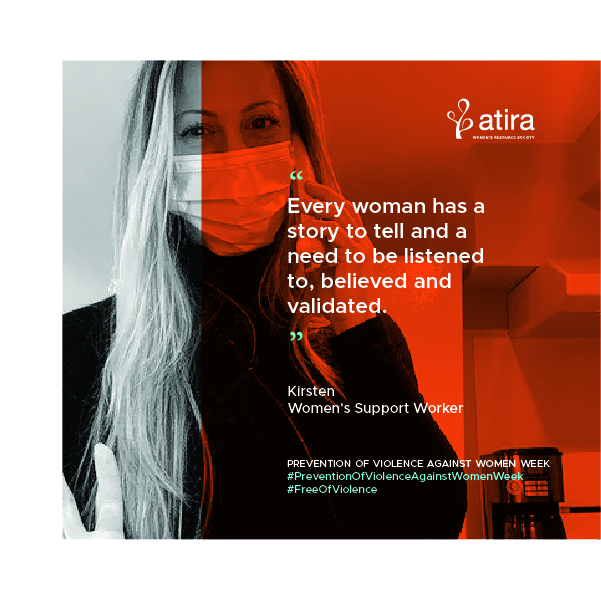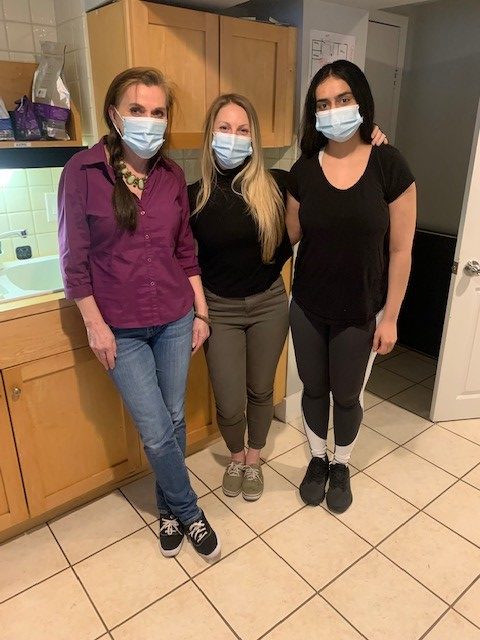Prevention of Violence Against Women Week: Violence Against Women Who Are Older
TELL US ABOUT YOUR JOURNEY TOWARDS WORKING WITH ATIRA AND WOMEN IN THE COMMUNITY.
I’ve been a Women’s Support Worker with Atira for 6 months now. My role includes providing day-to-day support in a transition house for women who are 55 year of age and older. What that support includes is as unique as the women themselves and the basis for identifying and providing that has been establishing safe, non-judgmental, trusting relationships – something which many of these women may not have had in their lives for quite some time, or ever.
The layers of needs that emerge range from acquiring basic ID, filling out housing applications, to accessing medical or mental health care, facing legal issues, or filing police reports. Most importantly is finding the moments among it all to smile together and cultivate meaning, joy and connection in their lives.
FROM YOUR EXPERIENCE, TELL US HOW YOU SEE VIOLENCE PRESENTS ITSELF IN THE EVERYDAY LIVES OF WOMEN ACCESSING OUR SERVICES.
I see isolation and lack of community connection exacerbate experiences of violence in many forms. Especially within the older population of women, there is disconnection, estrangement and abandonment by family and friends, lost social and career networks, inexperience with or no access to modern technology like cell phones or computers, declining health, and long-term effects of a history of trauma, substance use and lack of treatment.
All of this can limit the capacity to navigate change when challenges become overwhelming, and things can get out of hand —often, the most viable coping mechanism available, avoidance and self-medicating for example, can lead to further negative impacts. Women in these situations are highly vulnerable to being taken advantage of physically, psychologically, financially, systemically, you name it.
Every woman has a story to tell and a need to be listened to, believed, and validated. The look of relief I see come across faces, and the release of tension in the body when space is provided for this gets me every time. It reminds me how the simplest things in the most complex situations can have the biggest impact.

WHAT CALL-TO-ACTION DO YOU HAVE TO SHARE TO THE COMMUNITY TO PREVENT VIOLENCE AGAINST WOMEN?
I encourage others to learn about, support, and normalize the benefit and need of harm reduction spaces and housing for women. Advocating for and supporting women in how to advocate for themselves can shift experiences of violence into experiences of empowerment by building confidence, control, and autonomy in their lives.
Often this is done through accompanying women to appointments or during phone calls and by just being there day to day to intervene during conflict or help regulate if in distress. Most importantly, letting women know someone cares. The importance of helping women become aware they are worthy and deserving of a life free of violence, no matter what, can stop the cycle.
Kirsten B.
Women’s Support Worker
Florence Pierce Transitional Housing
HEAR MORE FROM ATIRA FRONTLINE STAFF!
WANT TO SEE MORE OF WHAT WE’RE DOING?
FOLLOW US ON SOCIAL MEDIA OR SUBSCRIBE TO OUR NEWSLETTER!
TWITTER
FACEBOOK
INSTAGRAM
LINKEDIN
IF YOU NEED SUPPORT, CONTACT US AT 604-681-4437 OR CALL OUR 24/7 CALL-IN SUPPORT LINE AT 604-800-8881.

